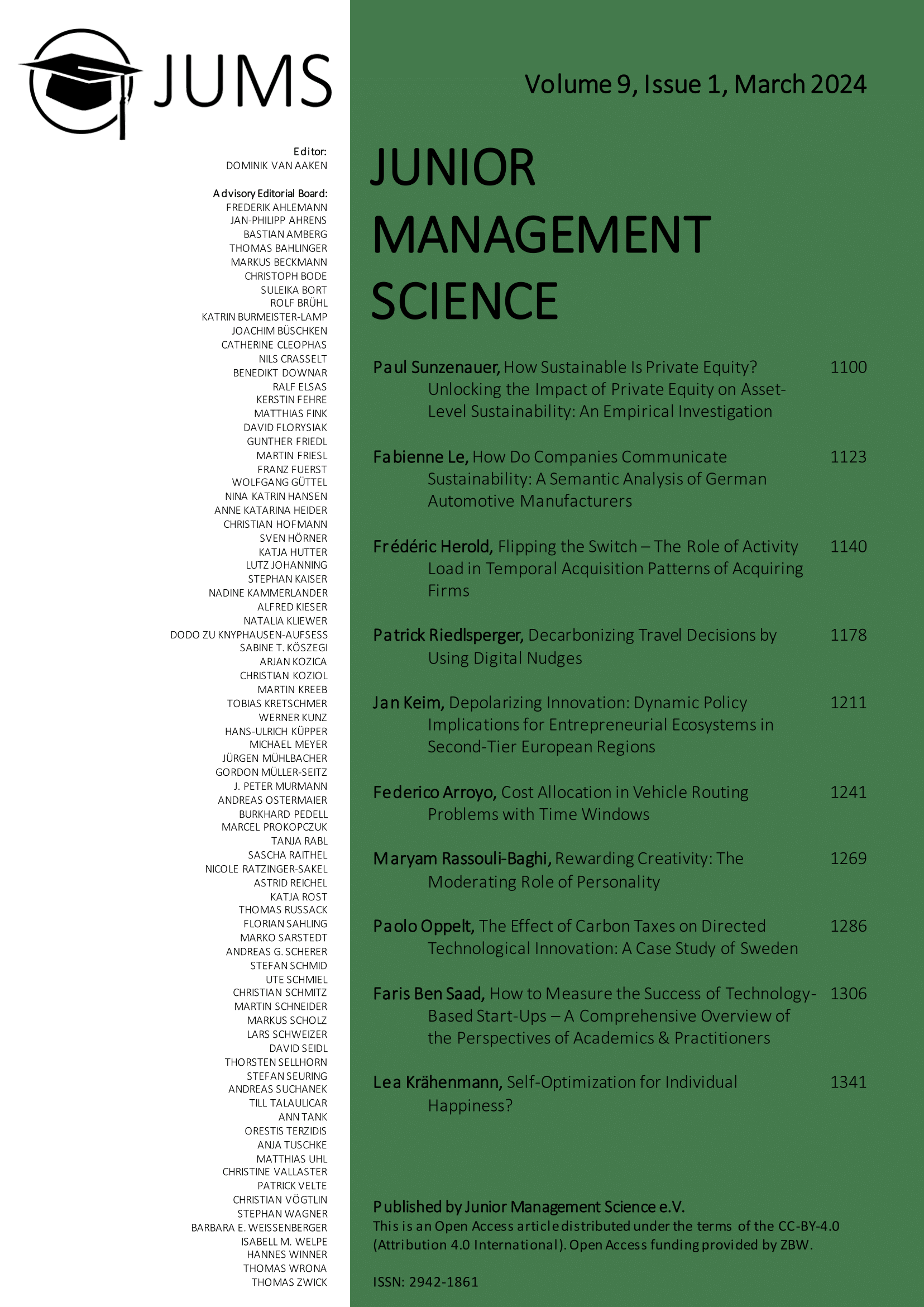Abstract
The current climate crisis was caused by our everyday, individual decision-making. People have the opportunity to decide between options that contain more or less greenhouse gases. This is particularly relevant for the travel industry which has historically been a major contributor to global emissions. The nudging concept introduced by Sunstein and Thaler (2021) can help people enhance their decision-making to promote environmental stewardship. Every consumption decision in travel is an opportunity as it can be ‘decarbonized’ to a greener outcome. This thesis provides evidence that the intervention technique is effective to lead to more sustainable decision-making in a digital travel booking process. This research project used a simulated booking process to compare the effectiveness of different digital nudges. Users could choose different options in their booking in the realm of transport, accommodation and restaurants. Overall, 456 online participants completed the process. The digital experiment used one regular booking process, which was used as a reference group, and 9 different types of digital nudges. The effectiveness of the nudges was analyzed by using a binary logistic regression model. Of the 9 experiments which included digital nudging interventions, 6 produced statistically significant results. The most effective nudge in the experiment used a social norm intervention. After its application to the process, odds were more than 4 times higher that users chose the most sustainable option that contained the least amount of greenhouse gases. In general, all regression coefficients (B) were positive, with odds ratios Exp(B) between 2.471 and 4.419. The results of this thesis support the view that nudges are an effective tool to drive more sustainable behavior. The results showed that digital nudges led to the booking of the most sustainable travel offers. User interface designers and other choice architects can use the findings of this thesis to reduce greenhouse gas emissions in travel as one of the many steps we must undertake to fight global warming and its drastic impacts on our economy and society.
Keywords: choice intervention; digital nudging; nudge theory; sustainability; travel

Dieses Werk steht unter der Lizenz Creative Commons Namensnennung 4.0 International.
Copyright (c) 2024 Patrick Riedlsperger

